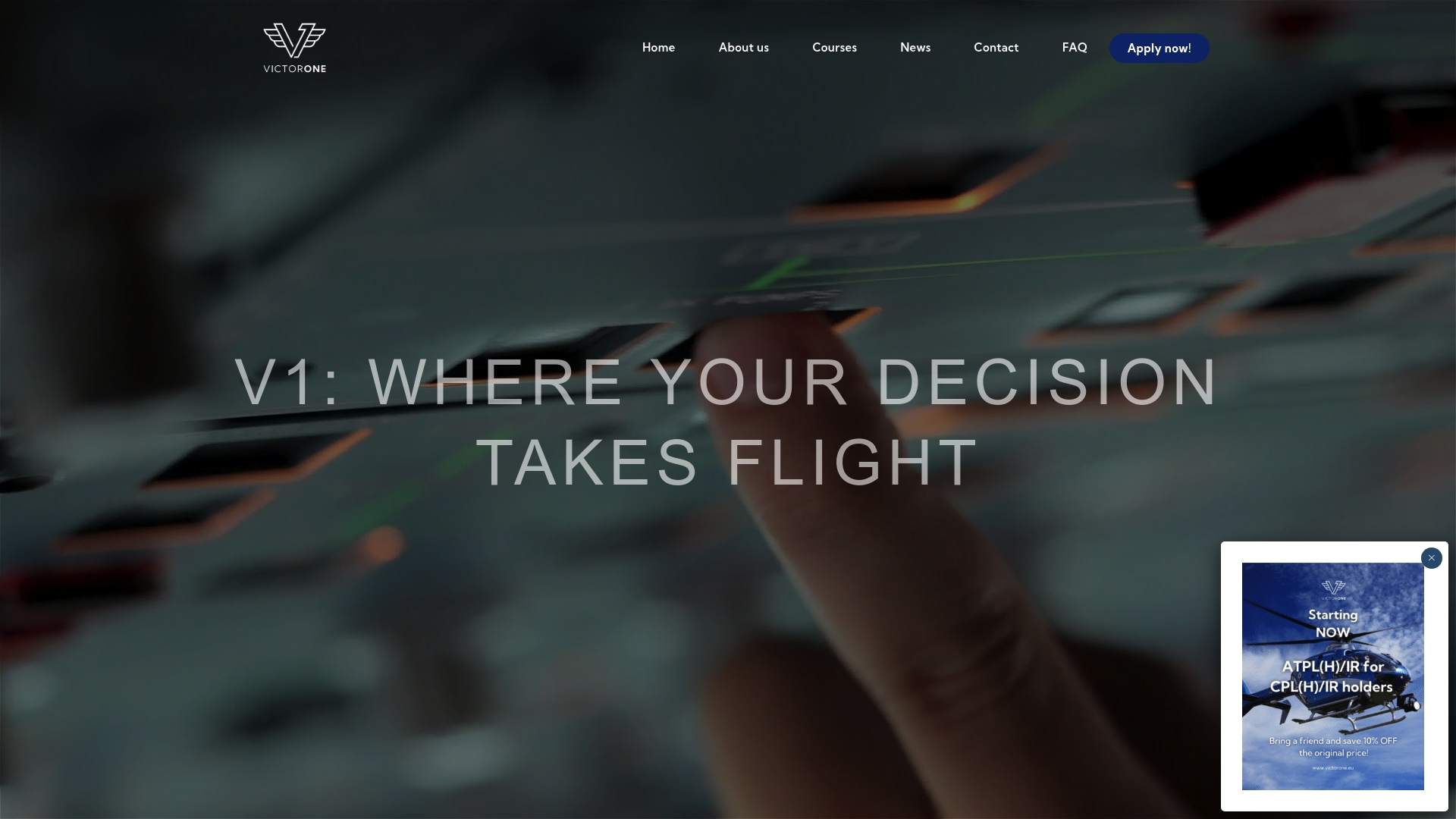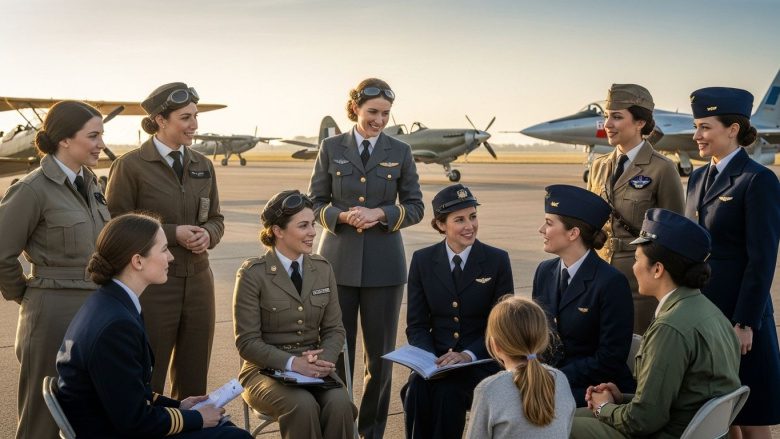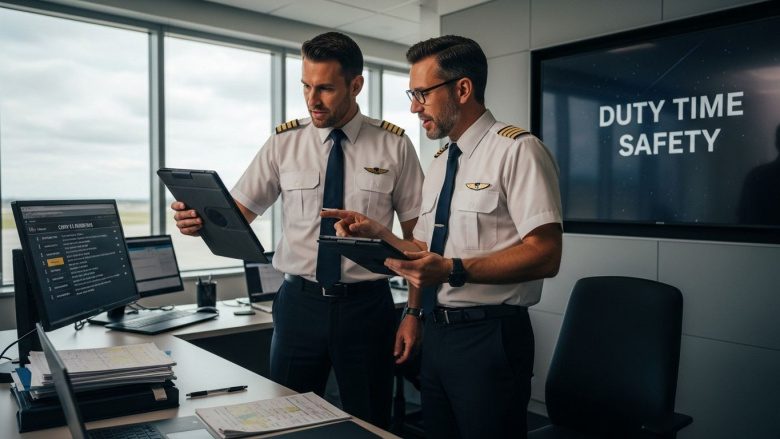Aviation professionals operate in a world where tiny mistakes can carry huge consequences and split-second decisions keep hundreds of lives safe. Surprising as it may sound, over 60 percent of pilots report experiencing significant work-related stress each year despite rigorous selection and training. The real shock is that classic stress advice like take a deep breath or get some rest barely scratches the surface for these professionals and what truly works in the cockpit is far more advanced than most people imagine.
Table of Contents
- Understanding Stress In Aviation Careers
- Practical Stress Reduction Techniques For Pilots
- Building A Healthy Mindset For Flight Success
- Incorporating Stress Management In Flight Training
Quick Summary
| Takeaway | Explanation |
|---|---|
| Identify unique stress factors in aviation | Aviation professionals face distinct psychological and physiological stressors that demand tailored management strategies. |
| Practice physical stress management techniques | Regular exercise and a balanced diet significantly reduce stress levels and enhance cognitive performance for pilots. |
| Integrate psychological skills in training | Incorporating stress management and emotional intelligence in flight training fosters resilience and effective teamwork under pressure. |
| Establish strong professional support systems | Regular assessments, peer support, and counselling services create safety nets for maintaining mental well-being in aviation careers. |
| Encourage a supportive professional culture | Promoting open conversations about mental health helps dismantle stigma and enhances psychological safety for aviation professionals. |
Understanding Stress in Aviation Careers
Aviation professionals operate in a high-stakes environment where precision, quick decision-making, and constant vigilance are not just professional requirements but critical safety imperatives. Research from the European Aviation Safety Agency (EASA) highlights that stress in aviation careers is a multifaceted challenge with profound implications for individual performance and overall aviation safety.
The Unique Stress Landscape of Aviation Professionals
Stress in aviation is fundamentally different from stress in many other professional domains. Pilots, air traffic controllers, and flight crew members face unique psychological and physiological pressures that extend far beyond typical workplace challenges. The responsibility of transporting hundreds of passengers safely, managing complex technological systems, and making split-second decisions under varying environmental conditions creates an inherently high-stress professional ecosystem.
Below is a summary table contrasting the key physiological and psychological stressors unique to aviation professionals, helping readers quickly scan the primary sources of stress described in the article.
| Type of Stressor | Examples | Effects on Professionals |
|---|---|---|
| Physiological Stressor | Irregular sleep patterns, extended work hours, shift work, time zone changes | Fatigue, disrupted circadian rhythms, reduced cognitive performance |
| Psychological Stressor | Constant situational awareness, emergency management, high vigilance requirements | Mental strain, emotional pressure, risk of mental health challenges |
| Systemic Stress Factor | Regulatory compliance, economic pressures, technological upgrades | Increased job instability, continuous adaptation, performance anxiety |
Physiological and Psychological Stressors
The stress experienced by aviation professionals manifests through multiple interconnected dimensions. Irregular sleep patterns due to changing time zones, extended work hours, and shift work can significantly disrupt circadian rhythms. According to a comprehensive study published in the Journal of Occupational Health, chronic sleep disruption among aviation professionals correlates with increased fatigue, reduced cognitive performance, and heightened risk of mental health challenges.

Moreover, the psychological demands are equally intense. Maintaining constant situational awareness, managing potential emergencies, navigating complex communication protocols, and sustaining high levels of concentration for extended periods create substantial mental strain. The need to consistently perform at peak levels while managing potential life-threatening scenarios generates a unique form of psychological pressure.
Professional and Systemic Stress Factors
Beyond individual experiences, systemic factors within aviation contribute significantly to stress levels. Regulatory compliance, rapidly evolving technological systems, economic pressures, and global operational challenges create additional layers of professional complexity. Flight crews must continuously adapt to changing international standards, technological upgrades, and increasingly sophisticated aircraft systems.
Economic uncertainties, such as industry restructuring, potential job instability, and competitive career progression, further compound stress levels. The high-stakes nature of aviation means that even minor performance deviations can have substantial professional consequences, creating an environment of constant performance evaluation.
Crew Resource Management training offers essential strategies for managing interpersonal and systemic stress, providing professionals with structured approaches to maintaining psychological resilience. Understanding these multifaceted stress dynamics is the first critical step towards developing effective stress reduction techniques tailored specifically for aviation professionals.
Recognising stress is not about identifying weakness but acknowledging the complex professional environment that demands extraordinary human performance under challenging conditions. By understanding these intricate stress mechanisms, aviation professionals can develop targeted strategies to maintain their psychological well-being and professional effectiveness.
Practical Stress Reduction Techniques for Pilots
Research from the European Aviation Safety Agency (EASA) demonstrates that proactive stress management is crucial for maintaining operational effectiveness and personal well-being among aviation professionals. Pilots require targeted strategies that address the unique psychological and physiological demands of their high-pressure career.
Physiological Stress Management Techniques
Physical resilience forms the foundation of effective stress reduction for pilots. Regular exercise emerges as a critical intervention strategy. Cardiovascular activities, strength training, and flexibility exercises help counteract the sedentary nature of cockpit environments. A comprehensive occupational health study reveals that pilots who engage in consistent physical activity demonstrate significantly lower stress hormone levels and improved cognitive performance.
Nutritional approaches also play a pivotal role. Maintaining a balanced diet rich in complex carbohydrates, lean proteins, and essential nutrients supports physiological stress response mechanisms. Pilots should prioritise hydration, limit caffeine and alcohol consumption, and focus on meal timing that aligns with irregular work schedules.
Psychological Stress Reduction Strategies
Mental resilience techniques are equally critical in managing aviation-specific stress. Mindfulness meditation and controlled breathing exercises offer powerful tools for immediate stress mitigation. These practices enable pilots to reset their psychological state, improve concentration, and maintain emotional equilibrium during high-pressure scenarios.
Crew Resource Management training provides comprehensive strategies for developing psychological coping mechanisms. By learning advanced communication techniques, emotional regulation, and team dynamics, pilots can build robust mental frameworks that enhance their stress management capabilities.
Professional Support and Continuous Learning
Systematic professional support represents another crucial stress reduction approach. Regular psychological assessments, peer support programs, and confidential counselling services create safety nets for aviation professionals. These resources help pilots process work-related stress, develop adaptive coping mechanisms, and maintain long-term mental health.
Continuous professional development and skills enhancement also contribute significantly to stress reduction. By staying updated with technological advancements, regulatory changes, and best practices, pilots can feel more confident and prepared. This proactive approach transforms potential stress triggers into opportunities for professional growth and mastery.
Ultimately, stress reduction for pilots is not about elimination but strategic management. By integrating physiological, psychological, and professional support strategies, aviation professionals can develop resilience that protects both their personal well-being and operational excellence.
The following table provides a concise overview of practical stress reduction techniques for pilots, organised by physiological, psychological, and professional approaches as described in the article.
| Stress Reduction Area | Example Techniques | Key Benefits |
|---|---|---|
| Physiological | Regular exercise, balanced diet, proper hydration, meal timing | Lowers stress hormones, boosts cognitive performance |
| Psychological | Mindfulness meditation, controlled breathing, emotional regulation | Immediate stress relief, improved concentration |
| Professional Support & Training | Peer support, counselling services, Crew Resource Management training, continuous learning | Creates safety net, strengthens coping skills, builds confidence |
Building a Healthy Mindset for Flight Success
Research from the European Aviation Safety Agency (EASA) underscores the critical importance of developing a resilient mental framework for aviation professionals. A healthy mindset is not merely a personal advantage but a fundamental requirement for maintaining operational safety and professional effectiveness.
Cognitive Resilience and Emotional Intelligence
Developing cognitive resilience begins with understanding emotional intelligence. Pilots must cultivate the ability to recognize, understand, and manage their emotional responses under high-pressure situations. Psychological research published in the Aviation, Space, and Environmental Medicine journal indicates that professionals with high emotional intelligence demonstrate superior performance in complex decision-making environments.
Key components of emotional intelligence include self-awareness, self-regulation, empathy, and advanced interpersonal communication skills. These capabilities enable aviation professionals to maintain composure, make rational decisions, and effectively collaborate with crew members during challenging scenarios. Emotional regulation techniques such as mindfulness meditation, cognitive reframing, and structured reflection can significantly enhance these skills.
Proactive Mental Health Strategies
Proactive mental health management goes beyond reactive stress reduction. It involves creating a comprehensive approach to psychological well-being that anticipates and mitigates potential challenges. This includes establishing robust support networks, engaging in regular psychological assessments, and developing personalised stress management protocols.
Our comprehensive study techniques guide emphasizes the importance of continuous learning and skill development as a mechanism for building mental resilience. By consistently expanding professional knowledge and adapting to technological advancements, pilots can reduce uncertainty-related stress and build confidence in their capabilities.
Building a Supportive Professional Culture
Creating a supportive professional culture is crucial in fostering a healthy mindset. This involves dismantling traditional stigmas surrounding mental health discussions in aviation and promoting an environment of open communication, mutual support, and psychological safety.
Organizational strategies should include confidential counselling services, peer support programs, and regular mental health workshops. These initiatives help normalize discussions about psychological challenges and provide aviation professionals with accessible resources for maintaining their mental well-being.
Ultimately, building a healthy mindset is an ongoing process of self-discovery, continuous learning, and proactive mental health management. By integrating emotional intelligence, professional development, and supportive organizational practices, aviation professionals can cultivate the psychological resilience necessary for long-term success and safety in their demanding careers.
Incorporating Stress Management in Flight Training
Research from the European Aviation Safety Agency (EASA) emphasizes the critical importance of integrating comprehensive stress management techniques directly into flight training curricula. Modern aviation education must move beyond technical skill development to include robust psychological preparedness strategies that equip aspiring pilots with essential mental resilience tools.
Simulated Stress Exposure Training
Simulated stress exposure represents a groundbreaking approach to preparing aviation professionals for high-pressure scenarios. Advanced flight simulators now incorporate sophisticated psychological training modules designed to expose pilots to complex, emotionally challenging situations in a controlled environment. Psychological research published in Aviation, Space, and Environmental Medicine demonstrates that systematic exposure to simulated stressors significantly improves cognitive performance and emotional regulation during actual flight conditions.
These advanced training scenarios go beyond traditional technical skill assessments. They include unexpected equipment failures, challenging weather conditions, communication breakdowns, and complex decision-making scenarios that test both technical competence and psychological resilience. By systematically introducing and managing stress responses in a safe learning environment, flight schools can help pilots develop adaptive coping mechanisms before encountering real-world challenges.
Psychological Skills Integration
Crew Resource Management training provides a comprehensive framework for integrating psychological skills into flight training. This approach emphasizes communication, teamwork, and emotional intelligence as critical components of aviation professionalism. Training programs now incorporate structured modules that teach emotional self-regulation, effective communication under pressure, and collaborative problem-solving techniques.
Key psychological skills include mindfulness techniques, cognitive reframing strategies, and advanced emotional intelligence development. Trainees learn to recognize and manage their stress responses, understand team dynamics, and maintain clear communication during high-pressure scenarios. These skills are not peripheral but fundamental to maintaining safety and performance in complex aviation environments.
Holistic Assessment and Support Systems
Modern flight training programs are developing holistic assessment frameworks that evaluate psychological readiness alongside technical competence. This approach involves continuous psychological monitoring, providing targeted support for trainees experiencing significant stress or demonstrating potential vulnerability to performance challenges.
Institutional support systems now include regular psychological assessments, confidential counselling services, and peer support networks. These resources help identify potential stress-related challenges early, providing interventions that support both individual well-being and overall aviation safety. By treating psychological preparedness as an integral component of professional training, aviation institutions are creating more resilient, adaptable professionals.

Incorporating stress management into flight training represents a paradigm shift in aviation education. It recognizes that technical skills and psychological resilience are intrinsically linked, with both being essential for creating safe, effective aviation professionals who can perform exceptionally under diverse and challenging conditions.
Frequently Asked Questions
What are effective stress reduction techniques for pilots?
Effective techniques include regular exercise, maintaining a balanced diet, practising mindfulness meditation, and engaging in peer support programmes. These methods help manage both physiological and psychological stressors in aviation.
How can mindfulness help aviation professionals deal with stress?
Mindfulness practices, such as meditation and controlled breathing, enable aviation professionals to reset their psychological state, improve concentration, and maintain emotional balance during high-pressure situations.
Why is physical fitness important for stress management in aviation?
Regular physical activity lowers stress hormone levels, enhances cognitive performance, and helps pilots cope with the sedentary nature of cockpit environments, making it crucial for stress management.
How can aviation training incorporate stress management strategies?
Integrating simulated stress exposure training, psychological skills development, and holistic assessments into flight training prepares pilots to handle real-world high-pressure scenarios effectively.
Elevate Your Aviation Career With Stress-Ready Theoretical Training
Aviation professionals know the weight of constant vigilance, high-stakes decisions and unrelenting psychological pressure. If you have felt the strain of disrupted sleep, the challenges of keeping concentration during long shifts or the fear that minor errors could impact your success, you are not alone. The article underscores how vital it is to manage both physiological and psychological stress if you want to perform at your best and stay resilient throughout your flying career.
Our platform at VictorOne.eu delivers EASA-approved pilot licensing courses and exam preparation designed with your professional realities in mind. We make it easy to build the cognitive resilience, technical mastery and emotional intelligence highlighted in the article by offering
- Fully online, flexible study materials you can access any time from anywhere
- Interactive question banks and consultations to reinforce learning even under pressure
- Up-to-date resources for exams like ICAO English proficiency and bridge courses for advancing your qualifications

Ready to future-proof your flying by mastering both theory and stress control? Visit VictorOne.eu now to enrol in our online training. Make the commitment to your well-being and professional growth today so you can fly with confidence tomorrow.


